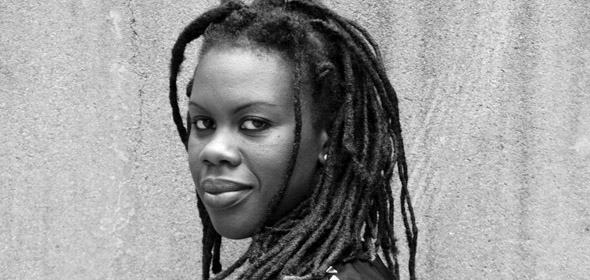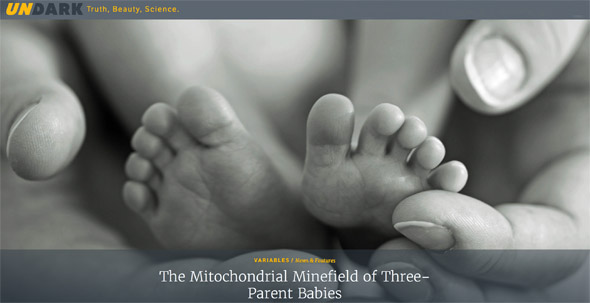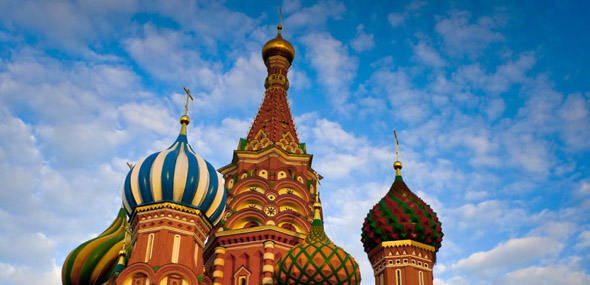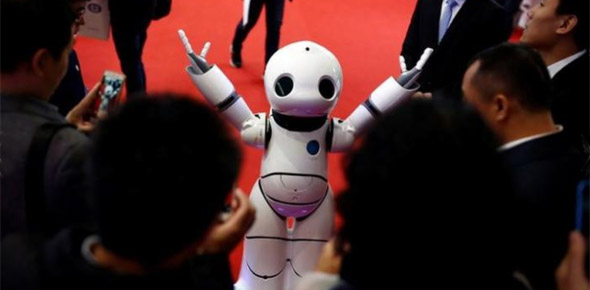Said and Done
February 2017
Published by the Office of the Dean
MIT School of Humanities, Arts, and Social Sciences

QUOTABLE
"At a fundamental level, the conduct of elections affects the experience of voters and people’s trust in American democracy. It’s imperative to get this right, as a nation, and we believe that this lab, under Professor Stewart’s leadership, can move us in the right direction.”
— Jean Bordewich, The William and Flora Hewlett Foundation
HONORS AND AWARDS
COMPARATIVE MEDIA STUDIES
Terrascope Radio documentary wins national award
MIT students’ personal account of desert farming in New Mexico earns top honors from college broadcasting association.
Story at MIT News
ECONOMICS
Noam Angrist '13 named to 2017 Forbes 30Under30 list
Angrist, the co-founder of the Botswana-based NGO, Young 1ove, is among the MIT students, faculty, staff, and alumni honored in "the most definitive gathering of today’s leading young change-makers and innovators."
Story at MIT News | Young 1ove website
HISTORY
Ekmekçioğlu and Bilal awarded grant in support of Armenian feminism project
The Gulbenkian Foundation of Portugal has awarded MIT historian Lerna Ekmekçioğlu and MIT visiting scholar Melissa Bilal a $20,000 grant in support of their book and a companion website project on feminism in Armenian. The project's ambitious digital humanities component is being developed in collaboration with the American University in Armenia’s digital library and MIT Libraries’ Digital Humanities section.
Ekmekçioğlu webpage | Bilal webpage | Gulbenkian Foundation
RESEARCH FEATURE
POLITICAL SCIENCE
Announcing the MIT Election Data & Science Lab | Interview with founder Charles Stewart III
The MIT Election Data and Science Lab — the Election Lab for short — aims to improve elections through non-partisan research, data, and evidence-based analysis. Founded by Charles Stewart III, the Kenan Sahin Distinguished Professor of Political Science at MIT, the lab will address multiple audiences of academic researchers, election practitioners, and the general public. It will serve a unique and independent role as it applies scientific principles to empirical questions about the administration of American elections.
Interview by SHASS Communications
“In the midst of a policy area that has become hyper-politicized, we aim to provide a counterbalance of hard evidence and analytical thinking," said lab founder Charles Stewart III, Kenan Sahin Distinguished Professor of Political Science at MIT. “The Election Lab will serve as an international, nonpartisan resource."
NEWS
THE INSTITUTE
MIT responds to Trump's executive order on travel
MIT leadership is helping directly-affected community members; President Reif speaks against the executive order and for national unity. MIT’s international students, postdocs, and researchers can contact the International Students Office and the International Scholars Office for immediate assistance. Members of the MIT community with legal questions about this situation can contact the Office of the General Counsel. All of these offices stand ready to provide direction and assistance to members of the MIT community who are in need of help.
Letter to the Community from MIT President L. Rafael Reif | Story
WOMENS AND GENDER STUDIES + ENGINEERING
"Hidden Figures" screening, discussion addresses the history of black women at NASA
Author and executive producer Margot Lee Shetterly explores inspiration for the film; MIT guest speakers provide additional historical context.
Story by William Litant
MIT CAMPAIGN FOR A BETTER WORLD
MIT in London
The city offers an ideal home for MIT SHASS alums whose work spans disciplines and continents. Meet Noam Angrist ’13, a Rhodes Scholar who shuttles between the U.K. and Botswana; Elaine Chew, SM ’98 PhD ’00, an accomplished pianist and professor of digital media at Queen Mary University of London; and Huma Yusuf, SM ’08, an associate director of a firm that consults on political and cultural issues in the Middle East and Africa.
Story by SHASS Communications
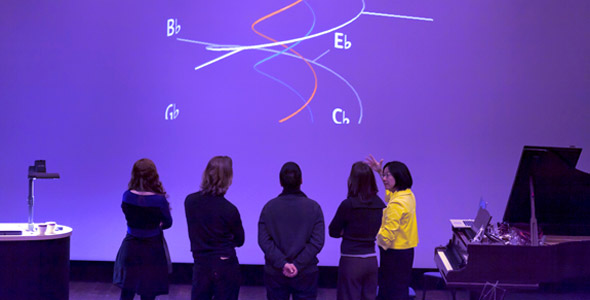
Elaine Chew describing her spiral array model to other composers.
“This is one of the few places in the world where I can do both music and science professionally,” says Elaine Chew SM ’98 PhD ’00, an accomplished pianist and Professor of Digital Media at Queen Mary University of London.
MIT GAME LAB
Play Labs, a tech accelerator for MIT students and alumni, is launched
The Game Lab — an MIT SHASS research group — along with Bayview Labs and the Seraph Group announce funding, facilities, and mentorship for startups focusing on virtual, augmented, and mixed reality.
Story at MIT News
UNDERGRADUATES
35 exceptional MIT students are named Burchard Scholars for 2017
Sophomores and juniors who excel in the HASS and STEM fields are honored.
Story by SHASS Communications
MISTI + SCIENCE
Jiwon Park: Reaching out to the world
MIT senior leads diverse projects to help women and students in developing countries.
Story at MIT News
RESEARCH FEATURE | THE HUMAN FACTOR SERIES
POLITICAL SCIENCE
Richard Nielsen | How political science research helps combat terrorism
Counterterrorism policies can have serious unintended consequences. In this interview, Nielsen discusses the "cognitive biases that come into play when we try to evaluate the risks posed by terrorism as well as the trade-offs of various counterterrorism policies." Nielsen's current book project, Deadly Clerics, explores why a minority of Muslim clerics adopt the ideology of militant Jihad, while the great majority do not.
Interview by SHASS Communications

Detail, Sultanahmet Mosque. Islam emphasizes worship, family, generosity, honesty, peace, forgiveness, and service to humanity.
“As humans, we have all sorts of cognitive biases that come into play when we try to evaluate the risks posed by terrorism as well as the trade-offs of various counterterrorism policies. Political science and other data-oriented disciplines offer an alternative to bias-based decisions, enabling leaders to make more effective policies and avoid a 'cure' that is worse than the disease.”
— Richard Nielsen, Assistant Professor of Political Science
PROFILE
Meet Charlotte Brathwaite, Assistant Professor of Theater
At MIT, it’s amazingly easy to find an engineering student preparing for a role in a Shakespeare play, a history student writing a script, or a young computer scientist crafting a high-tech theater set. In her first two years at MIT, Assistant Professor of Theater Charlotte Brathwaite has observed certain characteristics that the Theater and STEM fields have in common.
Story by SHASS Communications
"In theater, as in the STEM fields, we imagine the impossible and try to make that possible. We not only imagine, but create the world as we think the world should be. As a result, theater can be a vehicle for addressing major issues, from street violence to climate change."
— Charlotte Brathwaite, Assistant Professor of Theater at MIT
IN THE MEDIA
MIT SHASS In the Media
For the complete list of recent media stories about SHASS research and faculty, visit:
In the Media Section | February 2017
CIVIL SOCIETY
The future of American institutions depends on civil society | Daron Acemoglu
"Today we are coming to discover that contemporary democracy has its own soft underbelly — not so much a weakness against a cabal of colonels conspiring a violent takeover of government, but the gutting of state institutions and the incipient establishment of a variant of personal rule...We have to keep reminding ourselves...that the future of our much cherished institutions depends not on others but on ourselves, and that we are all individually responsible for our institutions."
Commentary at Foreign Policy
The End of the Commonwealth | John Tirman
Amid the many controversies attending the election of Donald Trump is one easy to overlook: the mounting assault on “public goods” — public education, public lands, public information and public health, among them. The worldview of Trump and those he’s bringing into government is one in which seeking private interest is paramount, not only as a business aspiration but as a governing ideology. Of all the attitudes of the new administration, this may be the most threatening to democratic practice.
Commentary at The Huffington Post
LABOR ECONOMICS
Protectionism | David Autor
"In 1970, more than a quarter of U.S. employees worked in manufacturing. By 2010, only one in 10 did. The growth in imports from China had a role in that decline — contributing, perhaps to as much as one-quarter of the employment drop-off from 1991 to 2007, according to an analysis by David Autor and his colleagues at MIT. But the U.S. jobs slide began well before China's rise as a manufacturing power. The phenomenon is driven by technology.”
Story at the Huffington Post
ECONOMICS
Why states fail and how to rebuild them | Daron Acemoglu
Few things matter more than fixing failed states. Broadly defined, state failure provides “a general explanation for why poor countries are poor,” argue Daron Acemoglu of MIT and James Robinson of the University of Chicago in Why Nations Fail.
Story at The Economist | Why Nations Fail
KNIGHT SCIENCE JOURNALISM FELLOWSHIPS
Unexpected risks found in editing genes to prevent inherited disorders | Undark
In September, a reproductive endocrinologist and his team captured the world's attention when they announced the birth of a child to a mother carrying a fatal genetic defect. But for all the accolades, the method also has scientists concerned that the fatally flawed mitochondria can resurface to threaten a child's health.
NPR National Public Radio
SECURITY STUDIES PROGRAM
First Trump press conference analyzed | Jim Walsh
WGBH talks to Jim Walsh, Senior Research Associate at MIT SSP, to analyze President-elect Trump’s first press conference in nearly six months.
Interview at WGBH
SECURITY STUDIES PROGRAM
Promising an arms race could set world on uncertain path | Vipin Narang
Narang, an MIT nuclear weapons expert, said China would build up its own abilities, but worried that it would seek a quicker fix as well. China might preload nuclear warheads onto missiles to shorten its response time, Narang suggested.
Story at the New York Times
POLITICAL SCIENCE
The nuclear weapons tweet, translated and explained | Vipin Narang
Narang, an MIT political scientist, said Trump's phrase “puts the onus on the world” to change its nuclear policies first. This premises Trump's nuclear policy as designed to coerce other states to take action, but leaves enough room that he can continue this policy “until pigs fly,” Mr. Narang said. This forces other states to guess at the quid pro quo, without knowing for sure whether America would respond in kind.
The New York Times
SECURITY STUDIES PROGRAM
How to think about Russia | Barry Posen
Because the West is strong, and relative to Russia likely to get stronger, it is in a position to accommodate some Russian concerns.
Commentary in National Interest
SCIENCE WRITING
Vaccines: Breaking down and debunking 10 myths | Seth Mnookin
Myth No. 1 is that vaccines cause autism. They do not. But once unleashed, a myth can be hard to rein in, says Seth Mnookin, director of the MIT Graduate Program in Science Writing, and author of The Panic Virus: The True Story of the Vaccine-Autism Controversy. "This idea has been set in people's minds," Mnookin says, "and it's going to take a while to overcome it."
Story at Bloomberg Online
HEALTH ECONOMICS
How emotion over pet care helps explain human health spending | Amy Finkelstein
“The emotional nature of the treatment decision may be important in explaining high and sometimes heroic end-of-life health care spending,” said MIT economist Amy Finkelstein.
Story at The New York Times
HEALTH ECONOMICS
The GOP has no workable replacement for the ACA | Jonathan Gruber
MIT health economist Jonathan Gruber discusses the possible repeal of the Affordable Care Act (ACA).
Story at Bloomberg News Online
ECONOMIC INEQUALITY
America's dual economy | Peter Temin
What path will inequality take under the policies of a President Trump? CityLab reports on research by MIT economic historian Peter Temin, who argues that the “Dual Economy” — with high income individuals at one end, few in the middle class, and many low-wage workers — will only become more extreme.
Story at City Lab
LABOR ECONOMICS
Don't fear the robots; they won't kill jobs | David Autor
"The new jobs panic is exaggerated and misplaced. For one thing, political and social caution may block some of the potential uses, such as self-driving cars. For another, many jobs will continue to require a blend of skills, flexibility and judgement that is difficult to automate. MIT Economist David Autor argues that such employment requires tacit expertise that cannot readily be codified."
Story at Reuters
A humanoid Urobot by Xiao Yanlin greets visitors at WRC 2016 World Robot Conference in Beijing, China, October 21, 2016. REUTERS/Thomas Peter
LITERATURE
Politically Correct: The phrase has gone from wisdom to weapon | Ruth Perry
NPR explores the term “politically correct” with insight from MIT Professor of Literature Ruth Perry, who describes the term’s current coinage and its rising stature from the 1990s through the present day. Perry has written about the moment the phrase took a turn toward its most common contemporary usage: a rebuttal to the ideals or practice of diversity.
Story at NPR
HISTORY
Energizing the history survey | Christopher Capozzola
MIT historican Christopher Capozzola talks about some ways that he helps his students think like historians through comparison and critical engagements with seemingly stable ideas like the Cold War.
Story at Inside Higher Education
COMPARATIVE MEDIA STUDIES
Open to debate | Heather Hendershot
Hendershot, an MIT professor of film and media, speaks on BookTV about her new book, Open to Debate: How William F. Buckley Put Liberal America on the Firing Line.
Story at Book TV - C-SPAN2
SCIENCE, TECHNOLOGY, AND SOCIETY
Books for the Trump Years | Sherry Turkle
"My suggestion focuses on the possibility that our institutions are fragile and will be under attack and we have to learn from Weimar to protect ourselves from authoritarianism. Before the Deluge: A Portrait of Berlin in the 1920s by Otto Friedrich is very readable and includes the cultural and scientific life Hitler destroyed."
Full story at The Huffington Post
POLITICAL SCIENCE
Xi Jinping Becomes an Unlikely Advocate of Free Trade at Davos | Taylor Fravel
“If Trump targets China’s exports to the United States, these policies might also harm U.S. allies in the region, who export components to China that are incorporated into products that China then exports to the United States,” says MIT political scientist M. Taylor Fravel. “None of the U.S. allies would support a U.S.-China trade war.”
Story at Time
LABOR ECONOMICS
A Challenge to the 'Secular Stagnation' Theory | Daron Acemoglu
The paper, by MIT economist Daron Acemoglu and Pascual Restrepo of Boston University, argues that aging populations have not had a negative effect on the growth of per-capita gross domestic product. In fact, some aging countries have seen faster growth. The answer, they argue, might have to do with robots.
The Wall Street Journal
STAY IN TOUCH
SHASS stories on MIT News
Bookmark this page
Social media
Facebook | Twitter
Publications Directory
Online portal to all MIT-SHASS publications
MIT Campaign for a Better World
Story | Join Us
Said and Done is published by the Office of the Dean
MIT School of Humanities, Arts, and Social Sciences
Editor and Designer: Emily Hiestand, Director, SHASS Communications
Publication Associate: Daniel Pritchard, SHASS Communications
Published February 1, 2017
About the MIT School of Humanities, Arts, and Social Sciences
MIT champions the power of STEM + SHASS for research and for educating great engineers, scientists, scholars, and citizens.
Making a better world — Generating solutions for the great challenges of our age requires both advanced technical and scientific knowledge and a deep understanding of the world's human complexities. MIT-SHASS researches and advances the cultural, political, and economic dimensions of innovation — the broad range of human realities, from deeply-felt cultural traditions to building codes to political tensions, in which science and technology issues are embedded.
Excellence — In 2015, MIT's Social Science disciplines were ranked first in the world, and MIT's Humanities and Arts disciplines were ranked among the top three worldwide.
Research with a global impact — The MIT-SHASS research portfolio is vast, including anthropology, comparative media studies, economics, history, international studies, languages, linguistics, literature, music and theater arts, political science, philosophy, security studies, and writing, including science writing.
Education that empowers — The School teaches every MIT undergraduate, empowering students with cultural and historical perspectives, and critical thinking and communication skills — to help them serve the world wisely and well. The School's seven graduate programs are all recognized as among the finest in the world.
Cultivating leaders — SHASS has a central role in international education at MIT, and in preparing students for leadership at home and on international teams. Through all their SHASS coursework, and in MISTI, the School's pioneering applied international education program, MIT students learn how to work, collaborate, and thrive in cultures around the globe.

